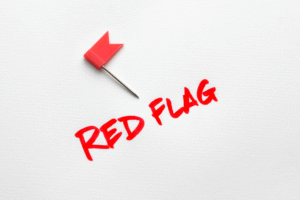Choosing the right supplement manufacturer directly impacts product quality, regulatory compliance, and your brand’s long-term success in the supplement market. Understanding the difference between negotiable vs. non-negotiable supplement manufacturing criteria is essential for ensuring product safety, meeting consumer demands, and protecting your brand’s reputation.
This article outlines identifying critical non-negotiable factors like GMP compliance, quality control, and ingredient sourcing, as well as identifying which elements—such as custom packaging or proprietary blends—can be adjusted based on your budget or target market. You’ll learn how to prioritize supplement manufacturing decisions that align with your business goals while navigating the complexities of private-label supplement manufacturing.
Table of Contents
ToggleWhat Are Non-Negotiable Criteria When Choosing a Supplement Manufacturer?
Non-negotiable criteria are the requirements a supplement manufacturer must meet to ensure your product is safe, legal, and reliable. No matter your brand’s size or budget, these standards cannot be compromised. Non-negotiables protect your supplement business from legal repercussions, product recalls, and serious consequences tied to non-compliance.
They also ensure your dietary supplements meet FDA regulations, support consumer safety, and boost customer satisfaction by maintaining consistent product quality. Ignoring these factors puts your business at risk and can damage consumer trust and your brand’s reputation.

Key Non-Negotiable Requirements to Always Look For
When evaluating supplement manufacturers, verify these non-negotiable elements are in place:
- Facility registration with the FDA and adherence to applicable regulations: The manufacturer must comply with applicable FDA regulations, including requirements for labeling accuracy and supporting the brand’s obligations for adverse event reporting under DSHEA.
- cGMP (Current Good Manufacturing Practices) certification: This ensures the facility follows strict quality standards in the supplement manufacturing process to produce high-quality supplements.
- Clean legal and regulatory record: Avoid manufacturers with unresolved FDA or FTC violations, as these signal a lack of attention to product safety and regulatory compliance.
- Strict internal quality control processes: A reliable manufacturer will implement quality assurance at each stage of the production process, including batch testing, to ensure quality and customer satisfaction.
- Transparent sourcing and third-party testing: High-quality products depend on verified raw materials, third-party testing, and full visibility into ingredient sourcing and supply chain practices.

What Are Negotiable Criteria When Choosing a Supplement Manufacturer?
Negotiable criteria are flexible elements of the supplement manufacturing process that can be adjusted to suit your brand’s goals, budget, and growth stage. Unlike non-negotiables, these factors do not affect regulatory compliance or product safety but can influence how efficiently and cost-effectively you bring your product to market. Negotiable choices allow supplement businesses to align their operations with their target market and unique selling points, helping brands create custom formulations or launch private label products more strategically.

Common Negotiable Factors You Can Customize
These areas can be tailored to meet your business needs when working with private-label supplement manufacturers:
- Minimum order quantities (MOQs): Startups may negotiate smaller MOQs to test the market, while established brands may scale with higher volumes.
- Lead times for production: Depending on the manufacturer’s capacity, timelines can often be adjusted to fit your launch schedule or restock plans.
- Pricing and volume discounts: Costs per unit typically decrease with larger orders; negotiating pricing helps improve margins and gain a competitive edge.
- Packaging options and design flexibility: Many private label manufacturers offer custom packaging that fits your brand’s identity and supports consumer trust.
- Shipping methods and fulfillment services: Choose from various shipping options and fulfillment support based on your location, distribution model, or day-to-day operations.

How to Prioritize Non-Negotiable and Negotiable Criteria
Choosing the right supplement manufacturer requires a clear plan. Understanding the difference between what you must have and what can be adjusted helps you make smarter decisions. A balanced approach protects your brand and keeps your supplement business moving forward.
Start with a Checklist Approach
Create a checklist of essential requirements. Divide them into two groups: non-negotiables like quality control, FDA regulations, and GMP compliance, and negotiables like minimum order quantities or packaging design. This helps keep your private-label supplement manufacturing process organized and focused.
Rank Your Brand’s Unique Needs
Each supplement brand is different. Startups might prioritize smaller MOQs and flexible pricing, while growing brands may focus more on consistent supply chain support or advanced custom formulations. Identify what matters most to your day-to-day operations and your target market.
Red Flags: When a Negotiable Becomes Non-Negotiable
Some negotiable factors may become non-negotiable based on your product’s focus, target market, or compliance needs. For example, in the supplement industry, what starts as a flexible option—like sourcing or formulation—can quickly become essential for ensuring dietary supplement health, brand differentiation, or consumer safety. Recognizing these shifts early helps protect your supplement business from product quality issues, legal repercussions, and loss of consumer trust.
- Immune health claims: If your product is marketed to support immune function, ingredient quality and third-party testing help ensure consistency and support consumer confidence.
- Proprietary blends: Using unique supplement formulations may require strict control over ingredient sourcing and transparency to avoid misleading claims.
- Custom packaging for compliance: Packaging design becomes non-negotiable if it must include specific supplement facts panel details or follow FDA labeling guidelines.
- Fast-growing brands: Lead times and MOQs may shift from flexible to fixed as your brand scales and needs consistent inventory.
- Product safety concerns: A manufacturer without adverse event reporting protocols or proper quality assurance is a serious risk, even if other terms seem flexible.
Pro Tip: When It’s Okay to Negotiate More Aggressively
If a manufacturer meets all your quality and regulatory requirements, it’s safe to push for better pricing, faster lead times, or more flexible packaging. This is especially helpful when launching private-label products or developing sports nutrition products to meet shifting consumer demands.

Real-World Examples: Negotiable vs Non-Negotiable Decisions in Action
Brand A, a startup in the protein powders market, agreed to a longer lead time to work with a private label manufacturer that followed strict FDA guidelines and offered third-party testing. They prioritized quality assurance over speed to help build long-term consumer trust.
Brand B, an established supplement business, negotiated lower MOQs and custom packaging for a limited release of proprietary blends. However, they refused to compromise on ingredient sourcing, demanding high-quality products aligned with their supplement facts panel and the brand’s reputation.

Why Balancing Both Types of Criteria Leads to Smarter Manufacturer Choices
Brands that balance strict non-negotiables with flexible negotiables are better equipped to adapt to the constantly evolving supplement industry. This approach helps them scale quickly while maintaining strong quality standards and regulatory compliance.
Focusing only on non-negotiables may limit innovation, especially in custom packaging or proprietary supplement formulations. Over-prioritizing price or volume discounts without checking for GMP compliance or quality control can lead to low-quality products, product recalls, and damage to customer loyalty.

How to Use a Simple Scoring System to Make Manufacturer Decisions Easier
Choosing the right supplement manufacturer involves many moving parts, from regulatory compliance to pricing and lead times. A simple point-based scoring system can make these decisions easier by helping you compare manufacturers side by side. Assign higher points to non-negotiable criteria like FDA compliance, cGMP certification, and third-party testing and lower points to negotiable items like MOQs, packaging, and shipping options. This keeps your evaluation process focused and aligned with your business priorities.
Using a weighted checklist also helps you stay objective when choosing between private-label supplement manufacturers. For example, give 10 points to quality control and 9 points to ingredient sourcing while assigning 5 points to flexible options like custom packaging. This makes it easier to spot manufacturers that meet your standards without sacrificing speed or cost efficiency.
Mastering the Balance Between Negotiable and Non-Negotiable Factors
Understanding the difference between negotiable and non-negotiable supplement manufacturing criteria helps you build a solid foundation for your supplement business. This clarity gives you an advantage in supplier discussions and helps align your product quality with your brand goals. Start building your requirements today, so you’re fully prepared before reaching out to private-label supplement manufacturers.
Frequently Asked Questions
What are examples of non-negotiable requirements for supplement manufacturers?
Non-negotiable requirements include FDA registration, cGMP certification, strict quality control, third-party testing, and full regulatory compliance.
Can you negotiate minimum order quantities with a manufacturer?
Yes, many private label manufacturers offer flexible MOQs, especially for startups testing new dietary supplement products.
How do you know if a supplement manufacturer is trustworthy?
Review the manufacturer’s FDA inspection history, transparency in sourcing, and use of third-party testing to assess quality practices.
Why is cGMP certification non-negotiable in supplement manufacturing?
GMP compliance helps ensure the manufacturing process meets required quality and safety standards.
How much flexibility should you allow when choosing a supplement manufacturer?
Allow flexibility on pricing, packaging, and shipping options as long as core quality and compliance standards are never compromised.
References
- U.S. Food and Drug Administration. (2024). Dietary Supplements. https://www.fda.gov/food/dietary-supplements
- U.S. Food and Drug Administration. (2005). Dietary Supplement Labeling Guide. https://www.fda.gov/food/dietary-supplements-guidance-documents-regulatory-information/dietary-supplement-labeling-guide
- U.S. Food and Drug Administration. (2018). Guidance for Industry: Questions and Answers Regarding Adverse Event Reporting and Recordkeeping for Dietary Supplements as Required by the Dietary Supplement and Nonprescription Drug Consumer Protection Act. https://www.fda.gov/regulatory-information/search-fda-guidance-documents/guidance-industry-questions-and-answers-regarding-adverse-event-reporting-and-recordkeeping-dietary
- U.S. Food and Drug Administration. (2023). New Dietary Ingredients in Dietary Supplements. https://www.fda.gov/food/new-dietary-ingredient-ndi-notification-process/new-dietary-ingredients-dietary-supplements-background-industry
- U.S. Food and Drug Administration. (2025). Recalls, Market Withdrawals, & Safety Alerts. https://www.fda.gov/safety/recalls-market-withdrawals-safety-alerts





